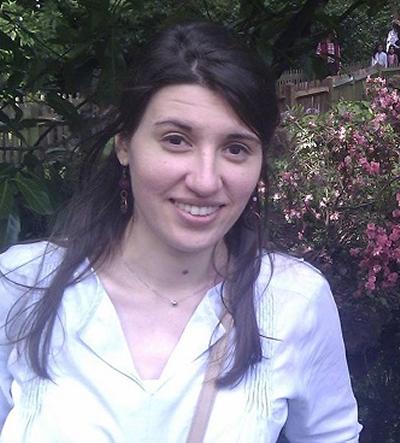Is there a 'performative' turn in Holocaust commemoration? - Revisiting the Polish Memory Landscape Seminar
.png_SIA_JPG_fit_to_width_MEDIUM.jpg)
For more information regarding this seminar, please .
Event details
Part of the Parkes Research Seminar Series 2015/2016
The 2000s has witnessed an increasing number of Holocaust remembrance initiatives led by museums, local communities, grassroots organisations, artists and other public actors inviting visitors to actively take part in public performances and rituals of Holocaust commemoration.
These include memory campaigns and public historical re-enactments such as Rafal Betlejewski’s I miss you, Jew and the Burning Barn (2010), the memorial ceremony and guided tour Spring in Warsaw (2009) initiated by Public Movement, an Israeli performance group in Warsaw, or Yael Bartana’s utopic film trilogy And Europe will be Stunned (2007-2011). Particularly relevant are the activities and memorialisation campaigns of Brama Grodzka - The NN Theatre Centre in Lublin. The Mysteries of Memory programme (2000-2008) consists of five audience participatory actions that aimed to transform the citizens of Lublin and members of Polish authority institutions into active agents of commemoration. Audience members were invited to perform individually or collectively symbolic rituals of shared remembrance such as to light a candle in the privacy of their homes to honour their Jewish neighbours, to mix soil found on the Jewish and the Christian sides of the Grodzka Gate, and to use it to plant vine shrubs in Lublin and in Israel.
These participatory actions will be called ‘performative’, a concept which best captures their inherent goal to facilitate an inner transformation within visitors. By altering the visitors’ perceptions and understandings of the past, it is hoped that they become agents or creators of memory rather than passive observers.
How meaningful or effective are performative practices of commemoration in engaging contemporary audiences with an ever-more-distant past? Do they enhance a transformative experience? What does this ‘transformation’ consist of? Are these actions bound to remain purely prescriptive and ceremonial? Beyond the theatricality or artificiality of performing gestures, is there room for an authentic connection with the past, and for a responsible, yet depoliticised engagement with this history? What values to these performative engagements promote?
These issues and others will be addressed in this initial exploration of the ‘performativity mode’ and its relevance for today’s Polish remembrance culture.

Speaker information
Diana Popescu, Pears Institute of the study of Antisemitism, Birkbeck, University of London. Diana Popescu is a cultural historian with expertise in representation and memorialisation of the Holocaust in areas of public memorial art, museum studies and contemporary visual arts. She has earned a PhD from the University of Southampton (2013), having been supervised by Prof. Andrea Reiter and Prof. Joachim Schloer. Her PhD examined Jewish-American and Israeli understandings of the Nazi legacy through close readings of several public debates prompted by Jewish art museums’ unconventional display of visual art depicting the Nazis. Currently, her research project investigates audience responses to performative Holocaust memorialisation, and is a collaborative research carried out together with art historian Tanja Schult from the University of Stockholm. This work is made possible by a generous grant from the Swedish Research Council. Diana co-edited with Schult the anthology titled Holocaust representation in the Post-Witness Era published by Palgrave Macmillan (2015). Her current research will result in a study which examines the role of performance and performativity in shaping contemporary publics’ understanding of the Holocaust.